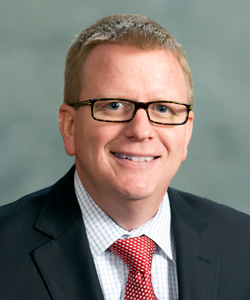We commit to the study and practice of nonviolence
Matthew 5:43–48
Submitted by Rev. Dr. Daniel J. Ott
“You have heard that it was said, ‘You shall love your neighbor and hate your enemy.’
But I say to you, Love your enemies and pray for those who persecute you,
so that you may be children of your Father in heaven.
Reflection: Many times peacemakers and warriors put themselves at odds with one another. They become enemies to one another. This should not be so. Peacemakers should have compassion for warriors and do everything in their power to ensure that warriors are thankful for the presence and actions of peacemakers.
One way that peacemakers can make peace with warriors is to attend to the problem of moral injury. Moral injury is different from Post-Traumatic Stress Disorder, and even warriors who do not suffer from PTSD may experience moral injury. PTSD involves involuntary reactions that often bring back vivid memories of a traumatic experience, resulting in a kind of reliving of the traumatic experience. PTSD should be treated clinically.
Moral injury results when warriors find themselves caught between two moral worlds. When a warrior returns from battle, the moral codes that applied on the battlefield no longer apply. This leaves the sufferer of moral injury feeling morally lost or disconnected. Those who study and seek to help with moral injury, like Rita Nakashima Brock, suggest that these injuries are not best addressed through clinical treatment. Rather, deep experiences of community and allowing veterans to express anger, guilt, and shame through ritual and art are more likely to repair the soul of the morally injured. Churches can be places that offer this kind of community and support.
Attending to moral injury would be a beautiful way for churches to uphold the promise “to support materially and socially veterans of war who suffer injury in body, mind, or spirit, even as we work toward the day when they will need to fight no more.”
Action: Learn more about moral injury by visiting the website of the Soul Repair Center at Brite Divinity School.[1] Consider how your church might welcome and support veterans of war.
Prayer: God, bless warriors. Heal them in body, mind, and spirit. And make me an instrument of your healing and peace. Amen.
 Daniel J. Ott is an associate professor in the Department of Philosophy and Religious Studies at Monmouth College, Monmouth Illinois. His research interests include liberal theology in the twentieth century and Christian approaches to peace and nonviolence. His articles and review articles have appeared in Political Theology and the American Journal for Theology and Philosophy among others. He is co-author with Hannah Schell of Christian Thought in America: A Brief History (Fortress Press).
Daniel J. Ott is an associate professor in the Department of Philosophy and Religious Studies at Monmouth College, Monmouth Illinois. His research interests include liberal theology in the twentieth century and Christian approaches to peace and nonviolence. His articles and review articles have appeared in Political Theology and the American Journal for Theology and Philosophy among others. He is co-author with Hannah Schell of Christian Thought in America: A Brief History (Fortress Press).
[1] https://www.brite.edu/programs/soul-repair/

This year’s Path of Peace reflections are based on the Five Affirmations to Guide the Peacemaking Witness of the Presbyterian Church (U.S.A.). Writers were recruited to help us explore the following affirmations as each week of A Season of Peace unfolds:
- Peacemaking is essential to our faith.
- We have sinned by participating in acts of violence.
- We reclaim the power of nonviolent love.
- We commit to the study and practice of nonviolence.
- We will practice boldly the things that make for peace.
Each author writes Monday–Friday, beginning with the first affirmation and ending with the fifth. The authors represent a variety of vocations and experiences in peacemaking efforts, and each week presents a new ‘voice’ to walk you through the affirmations. The weekend devotions, written by the editor, also reflect the five affirmations. Individuals and households are invited to make use of these daily reflections beginning on Sunday, September 3, and concluding on World Communion Sunday, October 1.